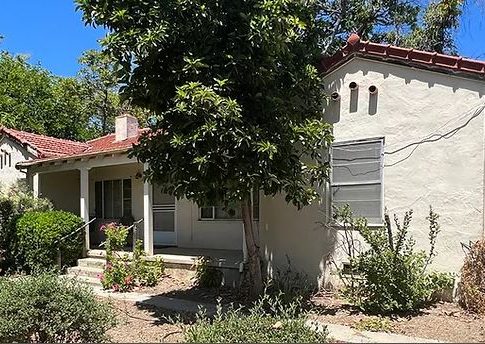By Randall Yip, AsAmNews Executive Editor
(Editor Note: Updated at 4:06 ET Nov 22 and 10:30 ET Nov 23 with additional comment)
Award-winning journalist and poet Nguyen Qui Duc has died following a battle with cancer.
Friends and loved one are leaving remembrances on his Facebook page.
Benjamin Reich, who organized a GoFundMe campaign for Duc’s medical expenses three weeks ago, confirmed the death to AsAmNews.
LATEST STORIES
“Unfortunately Duc passed away earlier today in Hanoi from a blood infection he developed in recent days,” he wrote via email.
Doctors diagnosed Nguyen with Stage IV lung cancer several months ago. It had metastasized with tumors developing in his abdomen and brain, according to Reich. Nguyen was in his mid-60’s.
Nguyen immigrated to the United States in 1975 and returned to Hanoi in 2006 to live.
The Overseas Press Club awarded him its citation of excellence for his reporting from Vietnam in 1989 for National Public Radio. His works have been published in the New York Times Magazine, the San Francisco Chronicle, San Jose Mercury News, The Asian Wall Street Journal and other publications.
His documentary Shanghai Nights aired on PBS’ FRONTLINE/World and won the Edward R. Murrow Award of Excellence in Television Documentary from the Overseas Press Club of America in 2005. He is also the two-time winner of the Gerbode Foundation’s Fellowship for Professional Development and received The Distinguished Service Award from the Society of Professional Journalists in 2006.
Journalist and writer Andrew Lam shared a common bond with his mentor Nguyen, a passion for writing and a shared experience as refugees to America. Lam joined a group started by Nguyen, Ink and Blood.
“We were Vietnamese of first generation trying to make some impact thought the arts- there were architects, musicians, scholars, poets, writers who gathered. The salon didn’t last long but it was his idea. And it made an impact,” said Lam to AsAmNews via email. “I am still shocked that he’s gone.”
Ngueyn hosted the Asian American radio program, Pacific Time, on KQED-FM, the NPR station in the San Francisco Bay Area from 2000 – 2006. The program at its peak aired on 40 NPR stations nationwide.
“Nguyen had a unique talent for asking just the right questions, those that dug deeper and illuminated the unexplored thoughts we all harbored,” said Cynthia Gouw who worked as a reporter on Pacific Time. “Nguyen Qui Duc was not just my colleague at Pacific Time at KQED, but a beacon in the landscape of the arts. His quick wit and sense of humor was often as profound as it was dark and it never failed to enlighten our discussions and challenge our perspectives. His legacy will continue to resonate through those of us who had the privilege of working alongside him and benefited from his keen insights and heart-felt laughter.”
Eddie Wong knew him during his time as executive director of the National Asian American Telecommunications Association, now the Center for Asian American Media.
“I had heard from his friends that he was diagnosed with cancer and that his treatment in Hanoi required payment in advance,” Wong, now publisher and editor of East Wind Ezine, said to AsAmNews. “I’m sure many friends rushed to his aid because he was a treasured colleague, friend and lover of life. I’m saddened by his loss but glad that he is no longer in pain. He will be remembered for his kindness and friendship. He had a fierce love for telling Asian American stories, a passion that we both shared.”
Filmmaker E. Samantha Cheng considered him a friend.
“Duc will be sorely missed by the creative community worldwide,” she wrote on Facebook. “Please help with whatever funds you can to pay down is medical debt and funeral costs.”
In his later years, Nguyen ran restaurants in Vietnam with apparently mixed success. In an interview with Vietcetera, he commented that his experiences as a businessman parallel his experiences with life.
“I can be stubborn, so over the years, I’ve handled failures pretty well. When you fail, you should pick up and move on—I’ve had to do that all my life, given that I grew up with a missing father, experienced my mother’s struggles to raise children while continuing public educational work, and immigrated to a foreign country as a young person,” he said.
Reich has lived in Vietnam the past 25 years and became friends with Nguyen when he moved to Hanoi.
“Duc meant so many different things to so many people. I’m just one of the many, many people in Hanoi and around the world whose life he touched. For me, I will remember him as a soulful friend, a kindhearted gentleman with a cheeky playful side, and a great late night storyteller. He was a humanist with conviction, but free of petty judgements. A true intellectual and a dear friend.”
Nguyen gained his passion for storytelling through his daily interactions with immigrants including Asians, Jews and Italians. He considered it his duty to speak up.
“I met lots of people who felt it was important to give voice to immigrants and refugees. Once I started working in journalism, I found more opportunities. One great benefit is traveling and meeting interesting people. As a journalist, you can call up anyone and ask to interview them, meet them, and learn things.”
Although he would still write an occasional story or two, he says his writing days were pretty much over once he moved back to Vietnam and began working in the restaurant industry.
“Vietnam is home, and it’s part of the most exciting continent,” said Nguyen, to the San Francisco Chronicle in 2006. “I had a lot of opportunity in this country, which has given us a lot. But here, I’m on the computer 24 hours a day. Over there, I feel warmer in Vietnam. I have time for friends.”
AsAmNews is published by the non-profit, Asian American Media Inc. Make a tax-deductible donation of at least $40 or pledge a monthly recurring donation of at least $10 by August 31 and receive a free copy of The Legend of Mu Lan: Heroine of Ancient China, the inspiration for the classic Disney movie. We are supported in part by funding provided by the State of California, administered by the California State Library in partnership with the California Department of Social Services and the California Commission on Asian and Pacific Islander American Affairs as part of the Stop the Hate program. To report a hate incident or hate crime and get support, go to CA vs Hate.











Nguyen Quí Duc, true to tradition, kept his name – with family name “Nguyen” first. “Duc”, his given name, would be the proper way to address him since the family name is so common. He was a breath of fresh air to Americans, who really never knew Vietnam, and to young Vietnamese seeking ways to express themselves in an often hostile environment.